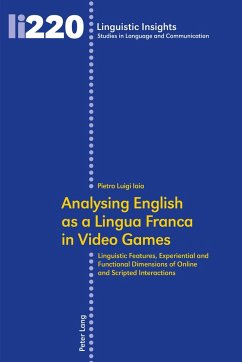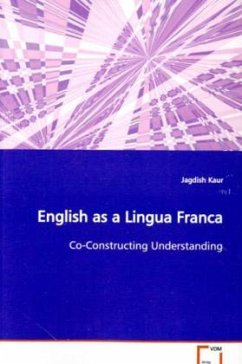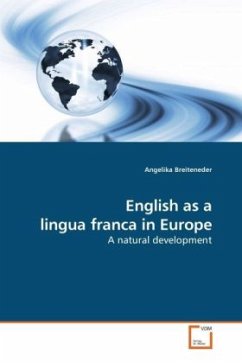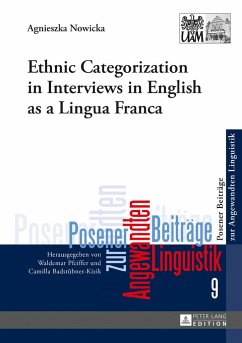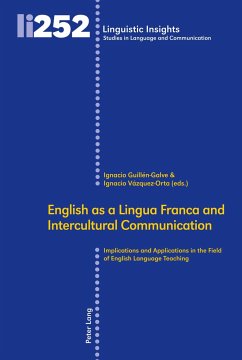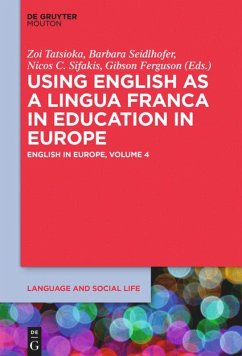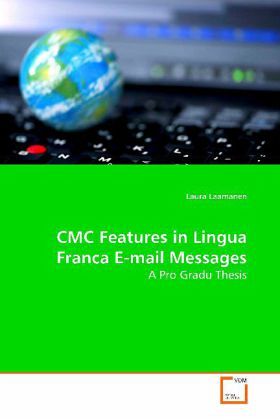
CMC Features in Lingua Franca E-mail Messages
A Pro Gradu Thesis
Versandkostenfrei!
Versandfertig in 6-10 Tagen
32,99 €
inkl. MwSt.

PAYBACK Punkte
16 °P sammeln!
English is used globally as a lingua franca, i.e. acontact language between people who do not share acommon language. The present study attempts to lookat the European lingua franca context by examininge-mail messages as they are written in an academiccontext, i.e. in one of the environments whereEnglish has been most widely adopted as a linguafranca. The e-mail messages were analysed withrespect to features that are typically associatedwith computer-mediated communication (CMC). The dataconsisted of English language e-mail messagescollected from six Erasmus coordinators at theUniversity of Jy...
English is used globally as a lingua franca, i.e. a
contact language between people who do not share a
common language. The present study attempts to look
at the European lingua franca context by examining
e-mail messages as they are written in an academic
context, i.e. in one of the environments where
English has been most widely adopted as a lingua
franca. The e-mail messages were analysed with
respect to features that are typically associated
with computer-mediated communication (CMC). The data
consisted of English language e-mail messages
collected from six Erasmus coordinators at the
University of Jyväskylä. The study aims at examining
the features ascribed to CMC and their frequency in
the data. The study also considers whether the
relationship and the role of the e-mail writers have
an influence on the language and in particular the
frequency of the CMC features used in the messages.
Further, the study examines the messages with respect
to the lingua franca use of English in them.
contact language between people who do not share a
common language. The present study attempts to look
at the European lingua franca context by examining
e-mail messages as they are written in an academic
context, i.e. in one of the environments where
English has been most widely adopted as a lingua
franca. The e-mail messages were analysed with
respect to features that are typically associated
with computer-mediated communication (CMC). The data
consisted of English language e-mail messages
collected from six Erasmus coordinators at the
University of Jyväskylä. The study aims at examining
the features ascribed to CMC and their frequency in
the data. The study also considers whether the
relationship and the role of the e-mail writers have
an influence on the language and in particular the
frequency of the CMC features used in the messages.
Further, the study examines the messages with respect
to the lingua franca use of English in them.



